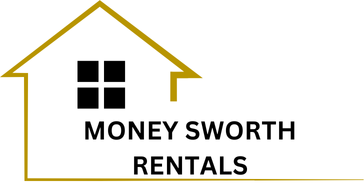American buyers seeking a slice of Paris have unique needs that local services can address. From navigating regulations to understanding market nuances, tailored real estate solutions make the process smoother. Discover how specialized agents can simplify your purchase, offering insights into neighborhoods and investment potential that align with your goals. Experience the Parisian lifestyle with confidence, knowing you’re backed by expertise designed for you.
Understanding the Paris Real Estate Market for American Buyers
When it comes to diving into the thriving Paris real estate market, American buyers are finding opportunities like never before. Look detillyparis.com, a resource dedicated to fulfilling the unique needs of expatriate buyers, plays a vital role in making this transition seamless and informed. From understanding market dynamics to navigating French bureaucracy, American buyers are well-positioned to access Paris’s real estate treasures.
A lire également : What should UK investors know about the tax implications of buying property through a limited company?
Current Paris Real Estate Market Trends
The Paris real estate market remains exceptionally robust, driven by a combination of high demand and limited supply. In 2025, property values continue to rise, particularly in central and historically significant neighborhoods. Homes in arrondissements such as Le Marais or Saint-Germain-des-Prés often see competitive offers due to their iconic charm and proximity to essential amenities.
For American buyers, this means heightened interest in high-yield investment properties or long-term residence opportunities. Recent trends also highlight a growing interest in eco-friendly and renovated properties, as sustainability becomes a significant consideration for many buyers. Paris consistently appeals to international audiences due to its cultural richness and the stability of its property market, ensuring that demand resists substantial fluctuations even during global economic uncertainties.
A lire en complément : Discover how rental guarantees can lead to financial independence in belgium
How American Buyers Are Influencing the Paris Market
American buyers, making up over 3% of the foreign property transactions in Paris, continue to hold a notable presence in the market. Particularly attracted by favorable currency exchange rates and the allure of a European lifestyle, they often look to Paris not only as an immediate residence but also as a long-term investment. Many Americans seek properties in historically rich districts or opt for modern luxury apartments, perfectly blending old-world charm with contemporary living.
These buyers frequently leverage professional aid to bridge cultural and linguistic gaps. Services such as personalized property searches, legal guidance, and financial planning ensure smoother transactions. The involvement of American-specific resources has successfully catered to these buyers by aligning with their expectations and legal knowledge of the U.S. real estate practices, creating an accommodating environment for cross-border purchasing.
Differences Between U.S. and French Real Estate Practices
Purchasing real estate in Paris can differ vastly from navigating the housing market in the United States. Unlike the broker-oriented system in the U.S., the French market emphasizes open networks where properties are often listed with multiple agencies. Additionally, French notaries play an integral role in formalizing sales agreements and ensuring compliance with local laws—a step that may be unfamiliar to many Americans.
Property taxes and transaction charges also present distinctions. In France, notary fees typically range from 4-6% of the property’s price, depending on whether it’s a new construction or pre-owned. Meanwhile, the U.S. market tends to rely more on mortgage origination fees and variable closing costs, many of which American buyers must adjust to when entering the French system.
Another vital contrast lies in the timeline: Paris’s purchasing process involves a structured schedule, from signing the preliminary contract (compromis de vente) to the final deed transfer. While extended compared to American counterparts, this procedure protects both buyer and seller interests, fostering clarity and security in the deal.
Choosing Paris: Why American Buyers Are Drawn Here
Paris continues to captivate Americans for several reasons—excellent international schools, rich historical neighborhoods, and beautiful green spaces like the Jardin du Luxembourg or Parc Monceau. Certain areas of Paris, such as the 7th and 16th arrondissements, are particularly sought-after for spacious homes and a quieter ambiance.
Moreover, tax treaties between the U.S. and France mitigate concerns over double taxation for expatriates, easing the financial burden of owning property in two countries. For many Americans, purchasing real estate here represents not just an investment in a home but also in a distinct lifestyle defined by elegance, convenience, and unparalleled cultural immersion.
By understanding the nuances of the Paris real estate market, American buyers can make informed and confident decisions.
Buying Property in Paris: A Comprehensive Guide
The Home Buying Process
Navigating the home buying process in Paris requires a structured understanding of the steps involved and the unique considerations of France’s legal and cultural frameworks. Unlike in some countries, the process typically begins with finding a property that aligns with your preferences and budget. Prospective buyers often work with a real estate expert familiar with expatriate services to streamline their search in desirable locations such as the 16th Arrondissement, famous for its elegance and convenience.
Once a property has been identified, the next step involves making an offer to the seller. If accepted, a preliminary contract called the compromis de vente is signed. This legally binding agreement outlines the terms of the sale and requires the buyer to place a deposit, usually between 5-10% of the purchase price. During this phase, sellers are generally prohibited from accepting other offers, giving the buyer exclusivity to proceed further.
The process then transitions into the due diligence stage, where notaries (legal representatives mandated by French law) handle the legal verification of property ownership and ensure that no liabilities, such as outstanding loans, are attached to the property. If you’d like additional assurance, completing a home inspection is a prudent step, particularly for expatriates unfamiliar with local housing standards. This phase takes several weeks and is critical to protect the buyer’s investment.
Finalization of the purchase, known as acte de vente, follows the due diligence period. At this stage, all parties meet to sign the official deed, and the remaining balance of the purchase price, in addition to notary fees (typically 6% for older properties or 4% for new ones), is paid. Keys are then handed over, and the buyer officially becomes the owner. The entire process, from selecting a property to completion, often takes between two to four months.
Legal Considerations for Property Purchase
Purchasing real estate in Paris as an American buyer comes with significant legal considerations. French property laws may differ from what many are accustomed to in the United States, making legal advice critical for a smooth transaction. For instance, the role of notaries is indispensable. Unlike lawyers in the U.S., notaries in France operate as neutral parties responsible for verifying the legality of property documentation and ensuring both the buyer and the seller comply with the terms of the agreement.
American buyers must also be aware of France’s inheritance laws. French law protects heirs through a forced heirship system, which mandates that a portion of your estate must go to your children or legal descendants. While this differs from the more flexible testament system in the U.S., options like setting up a civil pacte or purchasing the property under a specific ownership arrangement can help align with your inheritance planning.
In addition, it’s important to familiarize yourself with French taxation on property purchases. Property wealth tax, or Impôt sur la Fortune Immobilière, applies to those whose real estate worth exceeds €1.3 million. Similarly, capital gains tax, for non-primary residences, is applied at 36.2%. However, U.S.-based buyers can reduce double taxation liabilities thanks to the U.S.-France tax treaty, which outlines specific credits and exemptions.
Short-term rental regulations in Paris are another critical aspect, particularly if buyers plan to invest in vacation properties. Current laws restrict rentals for periods shorter than 120 days per year without proper authorization. For such investments, legal consultation is strongly recommended to ensure compliance with municipal rules.
Financing and Mortgage Options for Americans
For American buyers purchasing real estate in Paris, a well-considered financing strategy is essential. Securing a mortgage in France is a popular option, with local banks offering various financing solutions tailored to international clients. American buyers can often obtain mortgages with down payments as low as 20-30% of the property value, although some lenders may require additional guarantees or higher deposits.
Interest rates for mortgages in France are typically lower compared to those in the U.S., making it an attractive financing environment. Fixed-rate and variable-rate mortgages are both available, with terms often ranging from 15 to 25 years. Working with specialized mortgage brokers proficient in helping non-European buyers can ease the arrangement process and improve access to competitive rates.
Currency exchange is another important factor to consider, as fluctuations between the U.S. dollar and the euro can significantly impact overall property costs. Engaging a currency exchange specialist who offers forward contracts can help mitigate this risk.
Finally, many banks and financial institutions require proof of income, tax history, and comprehensive documentation before approving a loan. Preparing the necessary paperwork in advance is key to avoiding delays. The assistance of an expatriate real estate expert, such as those from De Tilly Paris, facilitates this process and ensures all compliance boxes are checked.
In summary, whether you need expert real estate services, legal insights, or assistance with financing tools, careful planning and consultation will position you for a successful property acquisition in Paris while embracing all aspects of France’s unique buying process.
Navigating the Paris Rental Market
Overview of Rental Options in Paris
The rental market in Paris for foreigners offers a diverse range of opportunities, but it is equally layered with challenges, particularly for newcomers. From chic city-center apartments brimming with Haussmannian charm to modern flats on the city’s edges, the options cater to a variety of tastes and lifestyles. If luxury is the priority, luxury properties in Paris for Americans are abundant, often located in prestigious districts like the 7th or 8th Arrondissements. Meanwhile, more budget-friendly units can be uncovered with persistence, especially with local expertise.
Paris rentals often fall under two categories: furnished and unfurnished. Furnished rentals are highly sought after for those planning shorter stays, providing the convenience of a ready-to-live-in property. Unfurnished homes, however, are better aligned with longer-term commitments and invite renters to personalize their space. The flexibility between these two types ensures that diverse needs and plans, from careers abroad to academic pursuits, are easily accommodated.
Short-Term vs. Long-Term Rentals
Short-term rental regulations in Paris present both opportunities and complications. For foreign travelers or expatriates, embracing a short-term lease may appear convenient, as it tends to be fully furnished and manageable without significant up-front commitment. Regulations, however, are quite stringent, particularly for properties rented out for fewer than 90 nights annually. This is due to restrictions imposed by the French government to manage Paris’s residential availability.
Conversely, long-term rentals offer fewer regulatory hurdles and are preferable for expatriates looking for stability. Lease agreements, under French law, typically run for three years, although different terms can be negotiated. Renters should familiarize themselves with the local French lease system, which outlines clear legal protections for tenants, such as limits on annual rent increases and conditions for evictions.
For Americans relocating to Paris, working with experienced property agents familiar with expatriate real estate services in Paris is invaluable. They can clarify the nuances of short- vs. long-term contracts while guiding clients toward the most suitable option for their situation.
Popular Neighborhoods for American Renters
Certain Parisian neighborhoods hold unique appeal to American renters, often because of their ambience, connections to iconic landmarks, and community feel. Expats and foreign investors frequently gravitate toward the neighborhoods to invest in Paris that combine accessibility, charm, and amenities.
- Le Marais (3rd and 4th Arrondissements): Known for its historic streets, boutique shopping, and vibrant nightlife, Le Marais is a favorite among younger professionals and creatives. It’s also well-connected to key metro lines.
- Saint-Germain-des-Prés (6th Arrondissement): Synonymous with sophistication, this area draws intellectuals, families, and retirees. Its café culture, art galleries, and proximity to the Seine make it one of Paris’s most prestigious neighborhoods.
- The Latin Quarter (5th Arrondissement): This student-centric district appeals to scholars and academics, offering easy access to esteemed institutions like La Sorbonne.
- 16th Arrondissement: Offering a more residential, upscale environment, the 16th is a hotspot for luxury properties for Americans in Paris, providing larger spaces and a quieter atmosphere compared to the bustling center.
Each neighborhood offers unique advantages based on lifestyle priorities. Proximity to local amenities, schools, and metro connections should be weighed carefully when planning the move.
Navigating these vibrant neighborhoods and understanding their nuances becomes seamless when leveraging guided services like those provided by De Tilly Paris. Their support for foreigners ensures renters find homes that truly match their preferences while navigating the complexities of the Paris rental market confidently.
Tips for Successful Property Investment in Paris
Identifying Emerging Neighborhoods
For American investors exploring the Paris real estate market, identifying emerging neighborhoods can unlock significant value over time. Emerging areas often combine lower entry price points with the potential for future appreciation. A key strategy is to focus on locations experiencing infrastructure upgrades, cultural developments, or an influx of creative industries.
Notable neighborhoods like the 19th Arrondissement, for example, have seen urban revitalization projects, such as new transport links and green spaces. Similarly, the outskirts of the 11th Arrondissement exhibit a growing allure among younger professionals and families due to a mix of affordability and growing amenities. For investors, pinpointing these areas early can yield significant long-term returns.
Understanding local dynamics is essential. Look for areas where buildings are being restored or where family-owned businesses are being augmented by trendier establishments. Checking public works schedules, such as future metro extensions, can also highlight burgeoning regions. Cross-referencing this data with current property prices ensures your purchase aligns with potential appreciation trends.
Effective Negotiation Techniques
When negotiating property deals in Paris, a sharp understanding of local market behaviors and cultural expectations is crucial. Parisian sellers may value interpersonal rapport and subtlety over more direct approaches, especially compared to American norms. Additionally, they may have emotional connections to properties that transcend mere market value—consider this when structuring offers.
One fruitful method is to base your negotiations on informative market analysis. Ask for records of recent comparable sales (commonly referred to as comps). For example, demonstrating how a nearby property sold for 5-10% less might provide leverage to negotiate the price within that range. Sellers are more likely to agree when faced with practical data.
Don’t shy away from seeking support from a notary or a real estate expert familiar with Parisian contracts. They often provide invaluable knowledge about less-obvious negotiation strategies, such as timing adjustments or creative financing clauses. Moreover, setting realistic contingencies like inspection evaluations, further reflects due diligence while keeping your offer competitive. Timing flexibility for the seller’s needs might also add non-financial appeal to your offer.
Engaging with Local Experts and Networks
In Paris, leaning on local experts and networks creates a smoother and more informed property investment journey. For Americans less familiar with French real estate intricacies, trusted partnerships with agents, notaries, and relocation advisors are paramount.
Consider collaboration with professionals such as real estate agencies tailored for expatriates. These agents not only bridge potential language gaps but also clarify legal obligations like the Compromis de Vente (preliminary sales agreement). Working with reputable services like De Tilly Paris can provide personalized guidance specific to American buyers, adding clarity to each step of the process.
American expat networks within the Paris region, like community meet-ups and forums, can also prove advantageous—offering personal experiences, recommendations, and support. Networking opportunities often bring firsthand referrals for legal advice, property management, or renovation services.
Combining professional resources with community insight results in a more comprehensive strategy, enhancing both confidence and precision in Paris property investments.











